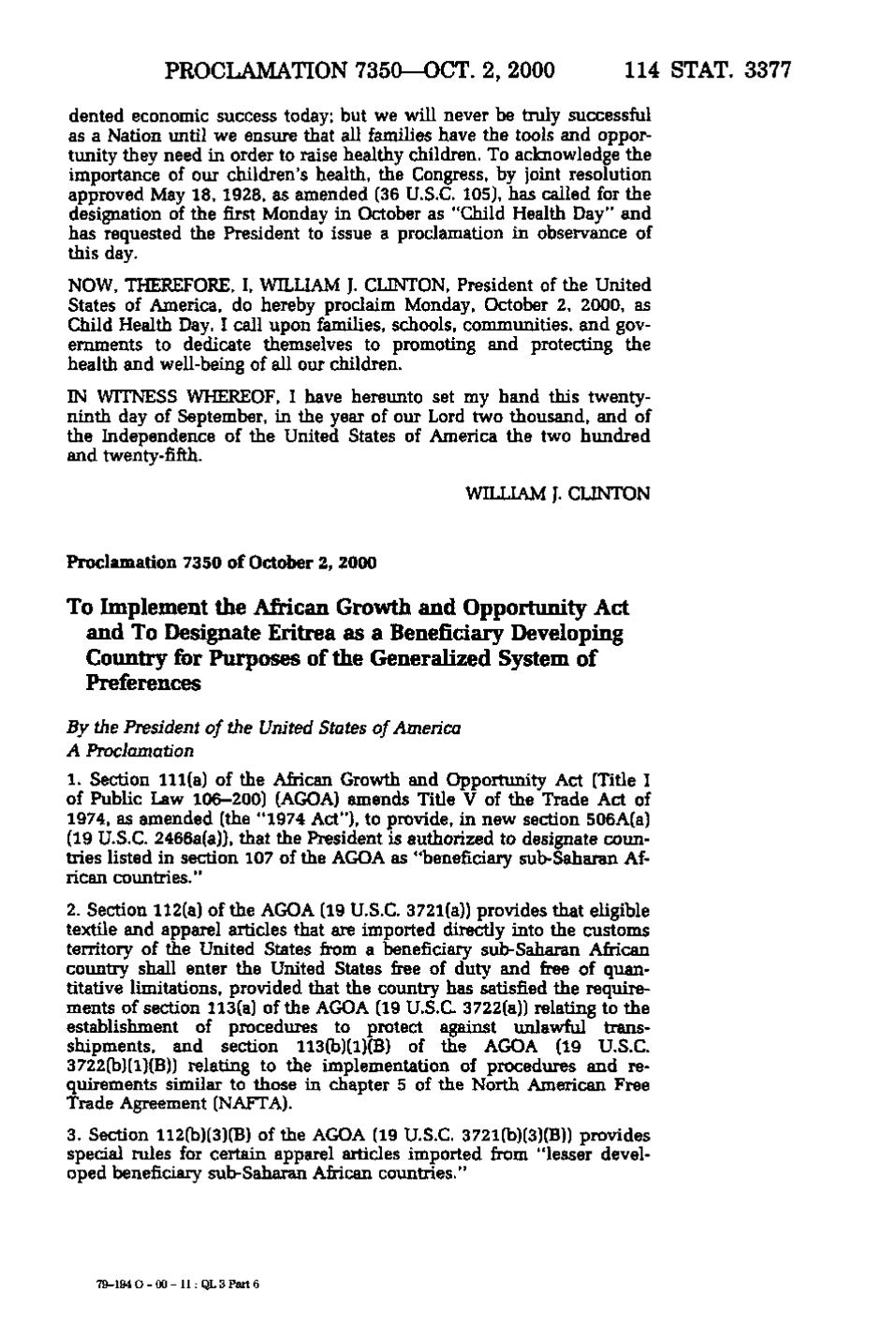PROCLAMATION 7350—OCT. 2, 2000 114 STAT. 3377 dented economic success today; but we will never be truly successful as a Nation until we ensure that all families have the tools and opportunity they need in order to raise healthy children. To acknowledge the importance of our children's health, the Congress, by joint resolution approved May 18, 1928, as amended (36 U.S.C. 105), has called for the designation of the first Monday in October as "Child Health Day" and has requested the President to issue a proclamation in observance of this day. NOW, THEREFORE, I, WILLIAM J. CLINTON, President of the United States of America, do hereby proclaim Monday, October 2, 2000, as Child Health Day. I call upon families, schools, communities, and governments to dedicate themselves to promoting and protecting the health and well-being of all our children. IN WITNESS WHEREOF, I have hereunto set my hand this twenty- ninth day of September, in the year of our Lord two thousand, and of the Independence of the United States of America the two hundred and twenty-fifth. WILLIAM J. CLINTON Proclamation 7350 of October 2, 2000 To Implement the African Growth and Opportunity Act and To Designate Eritrea as a Beneficiary Developing Country for Purposes of the Generalized System of Preferences By the President of the United States of America A Proclamation 1. Section 111(a) of the African Growth and Opportunity Act (Title I of Public Law 106-200) (AGOA) amends Title V of the Trade Act of 1974, as amended (the "1974 Act"), to provide, in new section 506A(a) (19 U.S.C. 2466a(a)), that the President is authorized to designate countries listed in section 107 of the AGOA as "beneficiary sub-Saharan Af- rican countries." 2. Section 112(a) of the AGOA (19 U.S.C. 3721(a)) provides that eligible textile and apparel articles that are imported directly into the customs territory of the United States from a beneficiary sub-Saharan African country shall enter the United States free of duty and free of quantitative limitations, provided that the country has satisfied the requirements of section 113(a) of the AGOA (19 U.S.C. 3722(a)) relating to the establishment of procedures to protect against imlawful transshipments, and section 113(b)(1)(B) of the AGOA (19 U.S.C. 3722(b)(1)(B)) relating to the implementation of procedures and requirements similar to those in chapter 5 of the North American Free Trade Agreement (NAFTA). 3. Section 112(b)(3)(B) of the AGOA (19 U.S.C. 3721(b)(3)(B)) provides special rules for certain apparel articles imported from "lesser developed beneficiary sub-Saharan African countries." 79-194O-00 -11:QL3Part6
�
